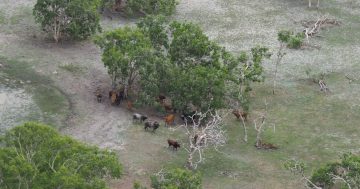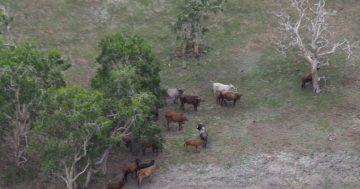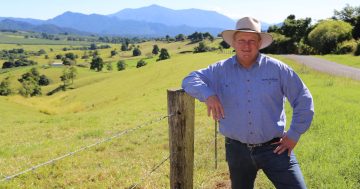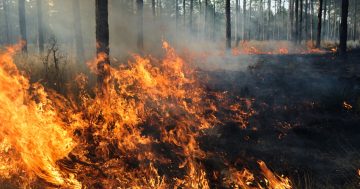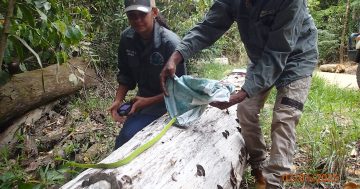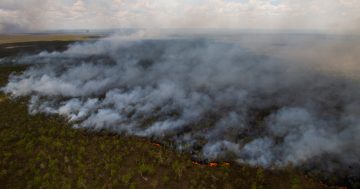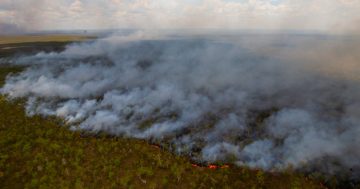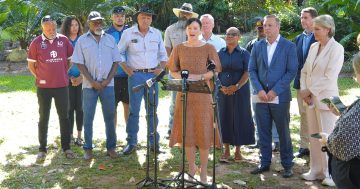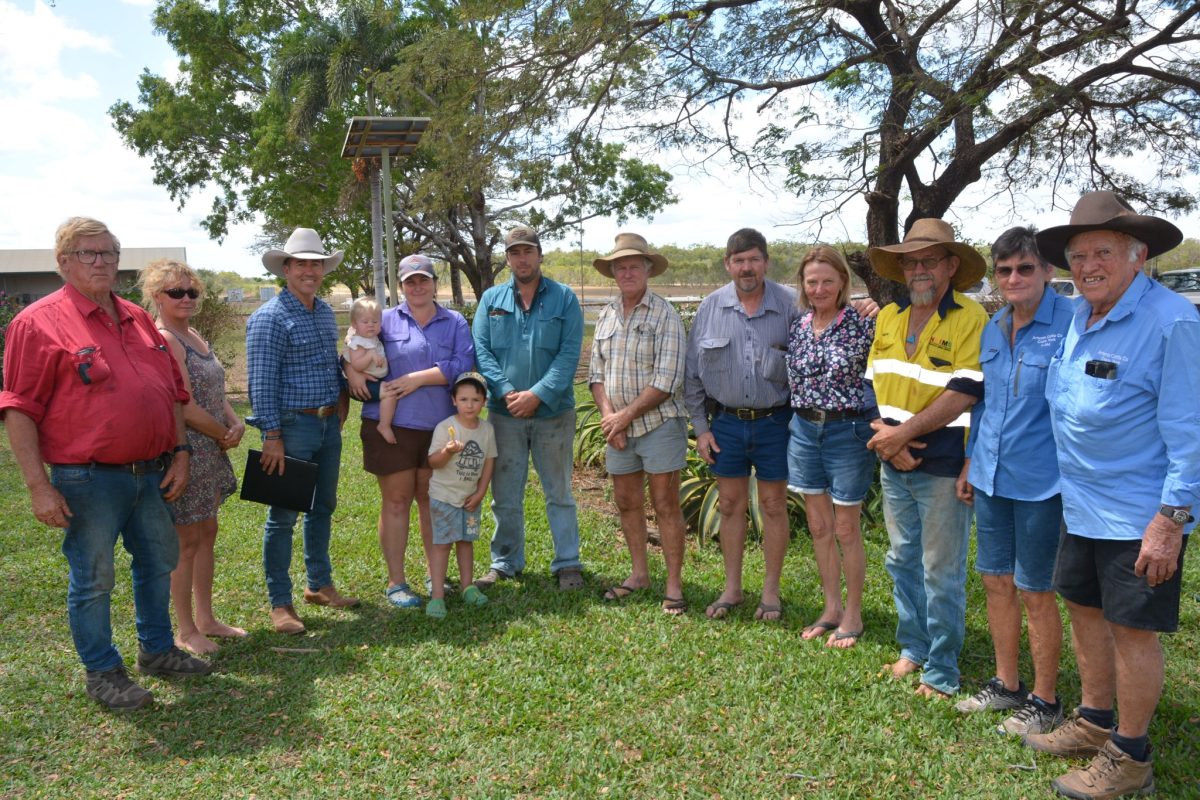
Cape York Cattle Growers chairman John Witherspoon, Tania Short, Katter’s Australian Party candidate for Cook Duane Amos, Danielle Hall, Andrew Hall, Glen Shephard, Scott Browning, Karen Walsh, Kevin Jackson, Sue Shephard and Tom Shephard say they have major concerns about the way the State Government is managing the management and seizure of cattle in Cape York national parks. Photo: Supplied.
A newly-formed alliance of Cape York cattle producers has blasted a “reign of terror” by the Queensland Parks and Wildlife Service (QPWS) it says results in their stock being shot if they stray into national parks.
The group, Cape York Cattle Growers (CYCG), met earlier this month to discuss how to best address the problem, which occurs when pastoralists are unable to remove cattle from Cape York Peninsula Aboriginal Land areas before deadlines determined by the Department of Environment, Science and Innovation (DESI).
Any cattle not removed from the national parks by the deadline are deemed “stray stock” by the government and subsequently seized and destroyed.
A permit system is in place to allow cattle producers to enter the national parks to muster their stock before the deadline, however, CYCG chairman John Witherspoon said bureaucratic processes were making it difficult to obtain the relevant permission in a workable timeframe.
“We applied for a permit to muster stock in Batavia National Park and the former Bromley holding but couldn’t get a permit, which took 12 months, and, by then, the cattle had moved,” he said.
“When we eventually got a permit, we had only a month to find cattle and get them out, and that was only for Batavia, not Bromley.
“Not only that, the QPWS want us to register all vehicles and have costly insurance for men who go into the park; we already have these policies on our own properties and registration should not be necessary, because we are not travelling on public roads.”
Correspondence to cattle producers from the government – dated 11 September and signed by a senior QPWS ranger – seen by Cape York Weekly appears to threaten pastoralists who attempt to retrieve their stock after they have been deemed stray following the deadline.
“It is an offence under section 154-O of the Nature Conservation Act 1992 for any person to tamper, interfere or remove any seized stock without authority,” the correspondence reads.
“The maximum penalty for an offence against this section is [$16,100] (100 penalty units).”
Mr Witherspoon said the group had major concerns with the way QPWS managed the destruction of seized stock.
“National parks have never owned cattle and because they refuse to fence their vast areas of pig-breeding grounds, we should not have to be continually threatened to have our cattle shot,” he said.
“The QPWS claim they are shooting only unbranded stock, but that is impossible to do when in a helicopter shooting galloping cattle and, besides, all cattle, unbranded or not, belong to somebody.
“The parks have been running a reign of terror over private cattlemen on the Peninsula for years, threatening to prosecute cattle owners if they enter a park to get their cattle; recently, a Coen producer said he got a letter saying he was going to be prosecuted for entering a neighbouring park to put out lick blocks along the boundary.”
A DESI spokesperson said the department has been working with pastoralists since February, adding unbranded cattle would be sold, not destroyed.
“DESI began issuing muster permits in July to facilitate the removal of branded cattle from Cape York national parks,” the spokesperson said.
“QPWS, with the assistance of the Queensland Police Service stock squad, oversaw potential ownership issues and consulted with the Department of Agriculture and Fisheries on potential biosecurity issues during the muster period.
“The seizure period from 15 September to 6 October is now in place – any remaining cattle in the national parks have been seized by QPWS; this will allow Traditional Owners and Aboriginal Land Trust rangers to muster unbranded cattle for commercial sale, with the proceeds going directly into the management of the national parks.
“Landowners who wish to make a final claim on livestock in the national parks are advised to provide a written claim to DESI to obtain a short-term stock muster permit.”
In 2021, 4009 seized cattle were removed from national parks, with 421 removed the following year.
No seizure program was undertaken in 2023.
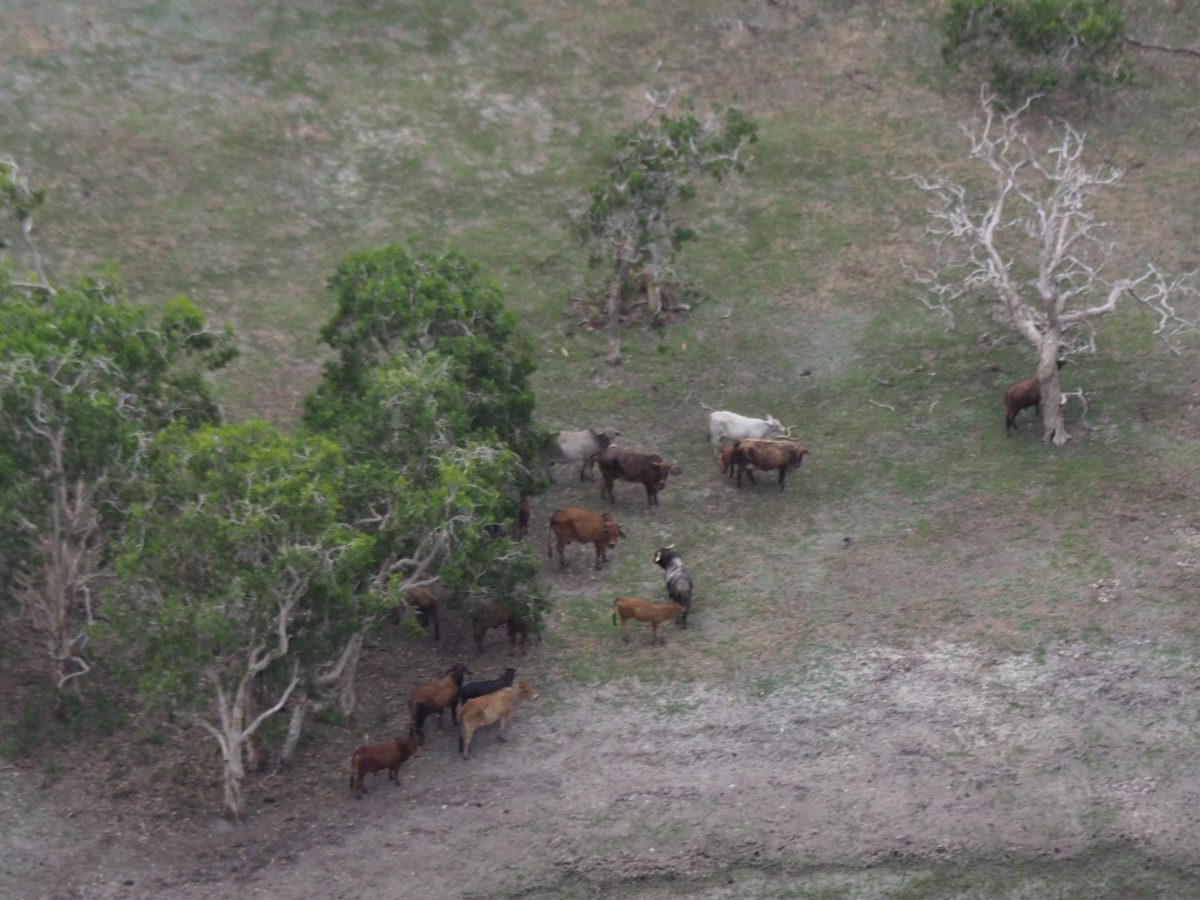
The Department of Environment, Science and Innovation has given cattle producers until 6 October to remove their stock from Cape York national parks, however, one group says the current management system represents a “reign of terror” that neither fair nor workable. Photo: Supplied.


